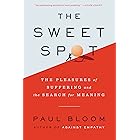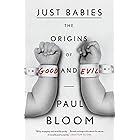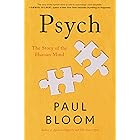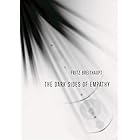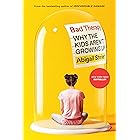| Print List Price: | $19.99 |
| Kindle Price: | $15.99 Save $4.00 (20%) |
| Sold by: | HarperCollins Publishers Price set by seller. |
Your Memberships & Subscriptions

Download the free Kindle app and start reading Kindle books instantly on your smartphone, tablet, or computer - no Kindle device required.
Read instantly on your browser with Kindle for Web.
Using your mobile phone camera - scan the code below and download the Kindle app.



 Audible sample
Audible sample Against Empathy: The Case for Rational Compassion Kindle Edition
New York Post Best Book of 2016
We often think of our capacity to experience the suffering of others as the ultimate source of goodness. Many of our wisest policy-makers, activists, scientists, and philosophers agree that the only problem with empathy is that we don’t have enough of it.
Nothing could be farther from the truth, argues Yale researcher Paul Bloom. In AGAINST EMPATHY, Bloom reveals empathy to be one of the leading motivators of inequality and immorality in society. Far from helping us to improve the lives of others, empathy is a capricious and irrational emotion that appeals to our narrow prejudices. It muddles our judgment and, ironically, often leads to cruelty. We are at our best when we are smart enough not to rely on it, but to draw instead upon a more distanced compassion.
Basing his argument on groundbreaking scientific findings, Bloom makes the case that some of the worst decisions made by individuals and nations—who to give money to, when to go to war, how to respond to climate change, and who to imprison—are too often motivated by honest, yet misplaced, emotions. With precision and wit, he demonstrates how empathy distorts our judgment in every aspect of our lives, from philanthropy and charity to the justice system; from medical care and education to parenting and marriage. Without empathy, Bloom insists, our decisions would be clearer, fairer, and—yes—ultimately more moral.
Brilliantly argued, urgent and humane, AGAINST EMPATHY shows us that, when it comes to both major policy decisions and the choices we make in our everyday lives, limiting our impulse toward empathy is often the most compassionate choice we can make.
- LanguageEnglish
- PublisherEcco
- Publication dateDecember 6, 2016
- File size2053 KB
Customers who bought this item also bought
 Empathy is the act of coming to experience the world as you think someone else does.Highlighted by 1,223 Kindle readers
Empathy is the act of coming to experience the world as you think someone else does.Highlighted by 1,223 Kindle readers Empathy is particularly insensitive to consequences that apply statistically rather than to specific individuals.Highlighted by 1,007 Kindle readers
Empathy is particularly insensitive to consequences that apply statistically rather than to specific individuals.Highlighted by 1,007 Kindle readers Further, spotlights only illuminate what they are pointed at, so empathy reflects our biases.Highlighted by 920 Kindle readers
Further, spotlights only illuminate what they are pointed at, so empathy reflects our biases.Highlighted by 920 Kindle readers
From the Publisher
| Customer Reviews |
4.5 out of 5 stars
254
|
4.3 out of 5 stars
257
|
4.2 out of 5 stars
1,127
|
|---|---|---|---|
| Price | $13.99$13.99 | $15.99$15.99 | $15.99$15.99 |
Editorial Reviews
Amazon.com Review
Review
“Refreshing.” (Library Journal)
“Provocative… and powerful.” (Publishers Weekly)
“An intriguing counterattack to modern psychological cynicism.” (Kirkus)
“Bloom challenges one of our most cherished assumptions about what it takes to be good. With elegance and humor, Bloom reveals just how flawed that assumption is, and offers a new vision of a moral life-one based on how our minds actually work.” (Carl Zimmer, author of Evolution: Making Sense of Life)
“Bloom’s analysis is penetrating, comprehensive, and timely. Against Empathy is destined to become a classic in psychology.” (Michael Shermer, Publisher Skeptic magazine, monthly columnist Scientific American, and author of The Moral Arc and The Science of Good and Evil)
“Despite a near consensus about its merits, Bloom shows that empathy is often just the warm embrace of prejudice-and, like anger, a reliable source of moral confusion. . . . a thrilling book, and reading it could well make you a better person.” (Sam Harris, author of the New York Times bestsellers The End of Faith, The Moral Landscape, and Waking Up)
“I couldn’t put this brilliantly argued book down.” (Amy Chua, Yale Law Professor and author of Battle Hymn of the Tiger Mother and The Triple Package)
“A brilliant, witty, and convincing defense of rational generosity against its pain-feeling detractors. Read this book and you will never think about empathy, goodness, or cold-blooded reason the same way again.”- (Larissa MacFarquhar, author of Strangers Drowning: Grappling with Impossible Idealism, Drastic Choices, and the Overpowering Urge to Help)
“Brilliant, powerful, and provocative, Against Empathy is sure to be one of the most controversial books of our time.” (Daniel Gilbert, author of Stumbling on Happiness)
“One of the most thought-provoking and convincing books I’ve read. Bloom’s logic is compelling, his prose fluid, and his deep humanity and compassion always evident. A must-read for those who want an alternative to a world where emotional gambits reign supreme--for better and often, for worse.” (Maria Konnivkova, author of The Confidence Game)
“The title may shock, but this is a book of calm reason and expansive compassion. It’s also a pleasure to read: warm, lucid, and thought-provoking.” (Steven Pinker, Johnstone Professor of Psychology, Harvard University, and author of The Better Angels of Our Nature)
“Bracing and provocative, Against Empathy takes a scalpel to empathy. This lucid and entertaining book argues there is a better way - that our capacity for reason, tempered with compassion, will make us better policy makers and better people.” (Emily Yoffe, author of What the Dog Did)
From the Back Cover
A controversial call to arms by one of the world’s leading psychologists, Against Empathy reveals how the natural impulse to share the feelings of others leads to cruel and irrational behavior on both the world stage and at home. With precision and wit, Paul Bloom demonstrates how empathy distorts our judgment in every aspect of our lives, from philanthropy and charity to the justice system; from medical care and education to parenting and marriage. Without empathy, Bloom insists, our decisions would be clearer, fairer, and—yes—ultimately more moral.
About the Author
Paul Bloom is Professor of Psychology at the University of Toronto, and the Brooks and Suzanne Ragen Professor Emeritus of Psychology at Yale University. His research explores the psychology of morality, identity, and pleasure. Bloom is the recipient of multiple awards and honors, including, most recently, the million-dollar Klaus J. Jacobs Research Prize. He has written for scientific journals such as Nature and Science, and for the New York Times, the New Yorker, and the Atlantic Monthly. He is the author or editor of eight books, including Against Empathy, Just Babies, How Pleasure Works, Descartes’ Baby, and, most recently, The Sweet Spot.
Product details
- ASIN : B01CY2LCZI
- Publisher : Ecco; Reprint edition (December 6, 2016)
- Publication date : December 6, 2016
- Language : English
- File size : 2053 KB
- Text-to-Speech : Enabled
- Screen Reader : Supported
- Enhanced typesetting : Enabled
- X-Ray : Enabled
- Word Wise : Enabled
- Print length : 266 pages
- Best Sellers Rank: #364,926 in Kindle Store (See Top 100 in Kindle Store)
- #38 in History of Psychology (Kindle Store)
- #256 in Emotions & Mental Health
- #368 in Government Social Policy
- Customer Reviews:
About the author

Paul Bloom is the Brooks and Suzanne Ragen Professor of Psychology and Cognitive Science at Yale University. His research explores how children and adults understand the physical and social world, with special focus on morality, religion, fiction, and art. His popular writing has appeared in the New York Times, the New Yorker, the Atlantic Monthly, Slate, Natural History, and many other publications. He has won numerous awards for his research and teaching. He lives in Guilford, Connecticut.
Customer reviews
Customer Reviews, including Product Star Ratings help customers to learn more about the product and decide whether it is the right product for them.
To calculate the overall star rating and percentage breakdown by star, we don’t use a simple average. Instead, our system considers things like how recent a review is and if the reviewer bought the item on Amazon. It also analyzed reviews to verify trustworthiness.
Learn more how customers reviews work on AmazonCustomers say
Customers find the book insightful and enjoyable to read. They appreciate the humor and clever writing style. However, some readers feel the moral content is flawed and irrefutable. Opinions differ on empathy as a guideline, with some finding it beneficial and distinguishing between rational and emotional thinking, while others consider it overused and exhausting. There are mixed views on the writing style, with some finding it engaging and easy to read, while others criticize rambling and weak arguments.
AI-generated from the text of customer reviews
Customers find the book insightful and interesting. They enjoy reading it, finding the arguments and illustrations engaging. The book is informative about available research and rewarding on a personal level. Readers mention that the theme strikes at their deepest intuition while being rational.
"...But now I don't. Empathy has its merits. It can be a great source of pleasure, involved in art and fiction and sports, and it can be a valuable..." Read more
"...These men were all men of “heart,” but they were deeply rational. They were integrated...." Read more
"...True, it's very rewarding on a personal level, but not in regards to strangers, charity, politics, and such...." Read more
"...Full of information, yet easy to read with a good number of endnotes for more info, and even a bit of humor, Against Empathy might lead you to..." Read more
Customers enjoy the humor. They find the language clever and enjoyable to read.
"...easy to read with a good number of endnotes for more info, and even a bit of humor, Against Empathy might lead you to reconsider what empathy is,..." Read more
"...It challenged my preconceptions (a wonderful trait in books). It was humorous and engrossing...." Read more
"...makes the case against empathy in an intelligent, thoughtful and entertaining way...." Read more
"I loved this book. It held me in suspense from the very beginning. Funny. Erika's use of language is clever and a joy to read...." Read more
Customers have different views on empathy. Some find it a moral guide, a balance of rational and emotional thinking, and what makes us human. Others say it's not always good and exhausting, and empathy is not black and white.
"...wish to note that he writes convincingly about the necessary narrow scope of empathy, it’s moral dilemmas, and biases...." Read more
"...more examples and a lot more data -- that this sort of empathy is biased and parochial; it focuses you on certain people at the expense of others;..." Read more
"...I found Against Empathy quite diverting and thought-provoking...." Read more
"...It also demonstrates the power of empathy. However, Yale professor Paul Bloom dares not dialogue on camera and advocate for his viewpoint...." Read more
Customers have different views on the writing style. Some find it convincing, easy to read, and engaging with clever language. Others feel the book contains weak arguments, cherry-picked data, and repetitive structure.
"...I wanted to like it, but the writing was just not up to par for what I was expecting from this specifity of topics and credentials of the..." Read more
"...write about his findings here but simply wish to note that he writes convincingly about the necessary narrow scope of empathy, it’s moral dilemmas,..." Read more
"...It may seem so, as disagreeable and precarious as it is, if we prefer that to a backsliding into a self-righteous state of societal peace..." Read more
"...Full of information, yet easy to read with a good number of endnotes for more info, and even a bit of humor, Against Empathy might lead you to..." Read more
Customers find the moral content interesting but flawed. They say it grounds foolish judgments and often motivates indifference and cruelty. Overall, they describe the book as a poor moral guide that provides irrelevant information. The references to other issues and matters distract from the main point.
"...But on the whole, it's a poor moral guide. It grounds foolish judgments and often motivates indifference and cruelty...." Read more
"...up important and valid points throughout his book but ultimately provides irrelant information...." Read more
"Too much rambling and changing the subject for me. I thought the central idea was interesting, but this was not pleasant to read." Read more
"...They were integrated. Jesus is perhaps the most rational ethical figure in history (both King and Gandi followed his ethic)...." Read more
Reviews with images
Thought I was buying a new book
Top reviews from the United States
There was a problem filtering reviews right now. Please try again later.
- Reviewed in the United States on May 8, 2017"I used to believe this as well. But now I don't. Empathy has its merits. It can be a great source of pleasure, involved in art and fiction and sports, and it can be a valuable aspect of intimate relationships. And it can sometimes spark us to do good. But on the whole, it's a poor moral guide. It grounds foolish judgments and often motivates indifference and cruelty. It can lead to irrational and unfair political decisions, it can corrode certain important relationships, such as between a doctor and a patient, and make us worse at being friends , parents, husbands, and wives. I am against empathy, and one of the goals of this book is to persuade you to be against empathy too."
Paul Bloom is not a fan of empathy. I hear many across this great nation asking "What kind of right-wing, fascist, wing-nut claptrap is this?" But I hear my friends' mouse clicks ordering Against Empathy: The Case for Rational Compassion. You will not be disappointed; it's a great book. But those expecting a hard edged, libertarian or Randian polemic will be surprised.
Before we get there, though, let's bask in the thesis. Empathy has her charms, but she's a poor guide to action.
"Some scholars will go on to reassure us that the emotional nature of morality is a good thing. Morality is the sort of thing that one shouldn't think through. Many of our moral heroes, real and fictional, are not rational maximizers or ethical eggheads; they are people of heart. From Huckleberry Finn to Pip to Jack Bauer, from Jesus to Gandhi to Martin Luther King Jr., they are individuals of great feeling. Rationality gets you Hannibal Lecter and Lex Luther .
[...]
But I wrote the book you are holding because I believe our emotional nature has been oversold. We have gut feelings, but we also have the capacity to override them, to think through issues, including moral issues, and to come to conclusions that can surprise us. I think this is where the real action is. It's what makes us distinctively human, and it gives us the potential to be better to one another, to create a world with less suffering and more flourishing and happiness."
I think every conservative, every libertarian, and every objectivist will set the book down on occasion to burst into load cheering. Reason's ascendancy makes us -- not only pareto-equivalent wealthier but also better friends, parents, and philanthropists.
"I've been focusing here on empathy in the Adam Smith sense, of feeling what others feel and, in particular, feeling their pain. I’ve argued -- and I'll expand on this throughout the rest of the book with more examples and a lot more data -- that this sort of empathy is biased and parochial; it focuses you on certain people at the expense of others; and it is innumerate, so it distorts our moral and policy decisions in ways that cause suffering instead of relieving it.:
He gets ten points from both me and Russ Roberts (I heard about the book on an EconTalk podcast) for serial allusion to Adam Smith. Smith remarked 250 years ago that a close friend's difficulties or a minor medical procedure on ourselves outweigh major catastrophes across the world. Sorry, hippies, that's empathy at work. Because it is harder to "feel the pain" of a Chinese earthquake victim than a co-worker's sick child, is that a good vector to direct our compassion?
"These are all serious cases. But why these and not others? It's surely not their significance in any objective sense. Paul Slovic discusses the immense focus on Natalee Holloway, an eighteen-year-old American student who went missing on vacation in Aruba and was believed to have been abducted and murdered. He points out that when Holloway went missing, the story of her plight took up far more television time than the concurrent genocide in Darfur."
One of the antecedents of "these cases" is the shooting at Sandy Hook Elementary School in Newtown, Connecticut. How many bad gun laws were passed in that tragedy's wake because moms and dads could "feel" the horror of that at their child's school. Reason did not get a seat in the boat.
I left breadcrumbs of doubt along this review. He does not take the road of reason to the same destinations some of us would. I can't let my Randian friends down easily. He is hostile to one whom I'd see as a philosophical ally.
"For every Uncle Tom's Cabin there is a Birth of a Nation. For every Bleak House there is an Atlas Shrugged. For every Color Purple there is a Turner Diaries, that white supremacist novel Timothy McVeigh left in his truck on the way to bombing the Oklahoma building. Every single one of these fictions plays on its readers' empathy: not just high- minded writers like Dickens, who invite us to sympathize with Little Dorrit, but also writers of Westerns, who present poor helpless colonizers attacked by awful violent Native Americans ; Ayn Rand, whose resplendent 'job-creators' are constantly being bothered by the pesky spongers who merely do the real work; and so on and so on."
If it's any consolation to the Randians 'round these parts, I don't think he gets Bleak House either. Little Dorrit, perhaps, but his earlier reference to Bleak House truly puzzled me.
Still, these are nits. He missed the point of Atlas Shrugged but managed to work it out on his own. It is an important work and its lack of right-wing-ism (a pointy-headed Yale Psychology Professor fer cryin' out loud!) might attract others. I sense that the Angus Deaton [Review Corner], James Tooley [Review Corner], William Easterly [Review Corner],and Poverty Inc. [Official Site] rethinking of the efficacy of charity is in the works. This could supplement it substantively.
Five Stars.
- Reviewed in the United States on January 27, 2017I thoroughly enjoyed Paul Bloom's book Against Empathy. Bloom set out to make his controversial claim that empathy leads to more harm than good. He’s against it. No really, he is. His words: “I am against empathy, and one of the goals of this book is to persuade you to be against empathy too” (p. 3). I don’t fully agree with his conclusion, but I do agree with a great deal of his argument. I’ve been doing some minor research on the topic of empathy which is what drove me to this book. It is en vogue these days to believe that empathy is key to all morality. Religious and philosophical ethics are commonly out the window; empathy is here to save the day. But is it? Is that claim truly justifiable?
First of all it’s important to note that Bloom is not a cold hearted anti-moralist monster. While he states clearly that he is against empathy, it’s important to note what he is for: “rational compassion.” It’s also important to understand his definition of empathy. He writes “the notion of empathy that I’m most interested in is the act of feeling what you believe other people feel–experiencing what they experience. This is how most psychologists and philosophers use the terms” (pp. 3-4).
I don’t want to write about his findings here but simply wish to note that he writes convincingly about the necessary narrow scope of empathy, it’s moral dilemmas, and biases. He also explores the frequent weaknesses of the test cases that apparently “prove” that empathy is our great moral compass. All of that to simply say, he makes a great case and writes a great book. I am going to write a few issues I take with the book, but mostly I thought it was great. My lopsided review is an attempt to leave the content for you and avoid spoilers.
Ultimately I’m persuaded but not fully convinced by Bloom’s argument. I think his categories are a tad too narrow and don’t allow for the overlap which is the integrated human person. I’m sure he would disagree, but perhaps empathy, rationality, and compassion overlap more than the author allows for. I noticed this early in the book when he wrote that “Many of our moral heroes, real and fictional, are not rational maximizers or ethical eggheads; they are people of heart. From Huckleberry Fin to Pip to Jack Bauer, from Jesus to Gandi to Martin Luther King Jr., they are individuals of great feeling” (p. 6) Really? Gandi, MLK, and Jesus were very rational in their ethics. King’s decision not to return violence for violence is about a lot of things, feeling is not one of them. This is a rationally planned decision to override what feeling would tell you in the moment. These men were all men of “heart,” but they were deeply rational. They were integrated. Jesus is perhaps the most rational ethical figure in history (both King and Gandi followed his ethic). Jesus’ ethic cannot be reduced to his golden rule as the author seemed to hint at. (Important to note that this ethic is shared by all major religions.) Neither can it be ignored. Integration seems key. At one point Bloom writes “if a child is starving, it doesn’t really matter whether the food is delivered by a smiling aid worker who hands it over and then gives the kid a hug, or dropped from the sky by a buzzing drone. The niceties of personal contact are far less important than actually saving lives” (p. 106). Well, yes; mainly true. But again, integration is key. Human touch cannot be measured the same way calories can be counted, and while the immediate need is most certainly food that needn’t diminish the long term – though often immeasurable – impact of human touch. Alas, I’m being a bit “nitpicky.” But one more thing.
Quoting James Rachels, “morality is, at the very least, the effort to guide one’s conduct by reason–that is, to do what there are the best reasons for doing–while giving equal weight to the interests of each individual affected by one’s decision” (p. 52) Here the question is which morality? What is the goal (telos) of morality? I certainly have a different telos than Bloom. This became really clear to me in the fifth chapter on “violence and cruelty.” Bloom writes, “unless we are transformed into angels, violence and the threat of violence are needed to rein in our worst instincts” (p. 179). It strikes me, therefore, that rational compassion is massively important, but the question remains: rational compassion towards what? Who’s version of morality? Who is right on their view of the role of violence, me or Bloom? Who decides. This is an important underlying moral question and I was unclear where he stood.
While I may disagree with some of Bloom’s assessments, I believe empathy has been significantly overplayed. Morality is important for every culture to think through and Bloom confronts what many have taken granted in ours. Despite my disagreement on some points, I am grateful for this work and hope it is widely read.
Top reviews from other countries
 Cliente AmazonReviewed in Spain on May 10, 2024
Cliente AmazonReviewed in Spain on May 10, 20244.0 out of 5 stars A must read for amyone interested in society, politics, family...
Clear, deep but easy to read, thought inspiring
-
 Carlos DornelesReviewed in Brazil on September 1, 2019
Carlos DornelesReviewed in Brazil on September 1, 20195.0 out of 5 stars Em favor da compaixão racional
Uma tese difícil de defender atualmente, mas Bloom consegue fazer isso de maneira envolvente e convincente. Apesar do título, o próprio Bloom admite que seu intuito se foca muito mais em uma crítica construtiva à empatia do que um repúdio total dela. Obviamente, isso depende da definição básica de empatia que o leitor assume, mas isso é acertadamente discutido pelo autor, além de discutir o caráter ambíguo e vago de definições diferentes eleitas por diversos pesquisadores e profissionais.
Por fim, é um excelente apelo a uma motivação próssocial básica (compaixão) associada às capacidades racionais humanas, para podermos ir além de um raciocínio emocional ao lidarmos com o sofrimento humano, justiça e moralidade.
-
 QuedevilleReviewed in France on June 17, 2020
QuedevilleReviewed in France on June 17, 20201.0 out of 5 stars BOF
Je n'ai pas compris l'intérêt de ce livre. Distinguer une empathie cognitive qui se limite a comprendre les émotions des autres pour en profiter ne permet pas de discréditer l'empathie au sens le plus usuel. Le sujet que j'attendais était : comment comprendre les émotions des autres nous conduit-il a des résultats contre productifs. Ce sujet est quelque peu traité mais sans grands apports.
 Andrea Rodríguez ZavalaReviewed in Mexico on November 2, 2018
Andrea Rodríguez ZavalaReviewed in Mexico on November 2, 20185.0 out of 5 stars I love it
Really it is one of the best book I've ever read. Bloom taught me through this book the art of the empathy.
 Amazon CustomerReviewed in India on January 14, 2018
Amazon CustomerReviewed in India on January 14, 20185.0 out of 5 stars A much needed book on Empathy
Paul Bloom presents his his case in a very convincing manner. A must read for students who are interested in this field.





